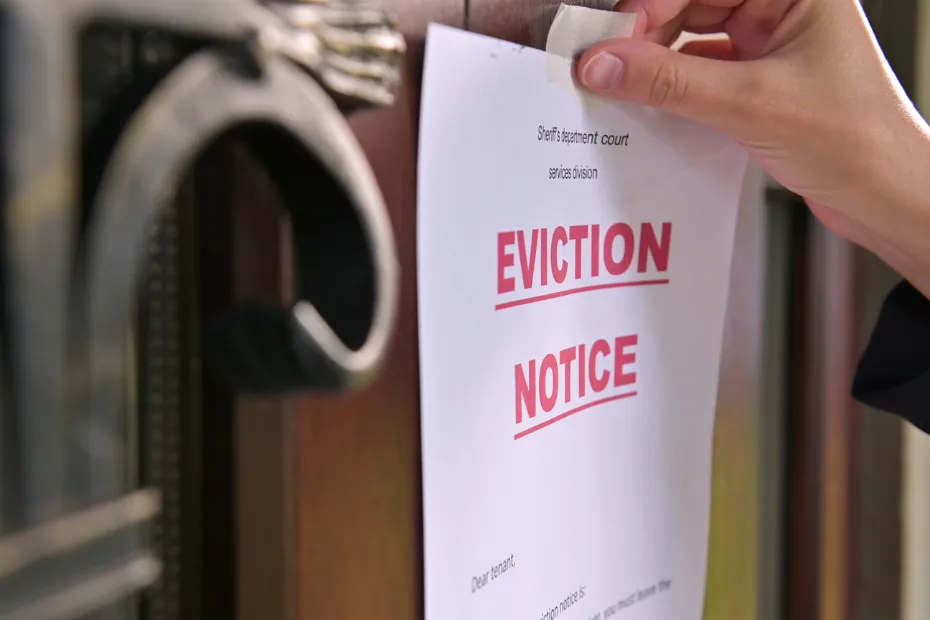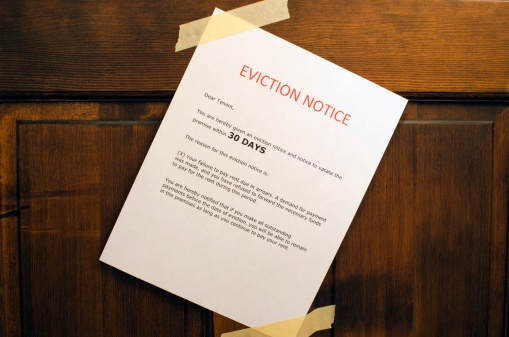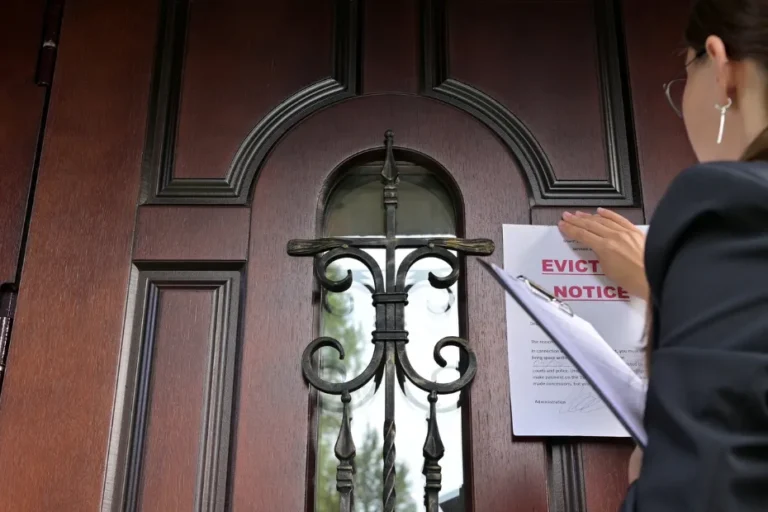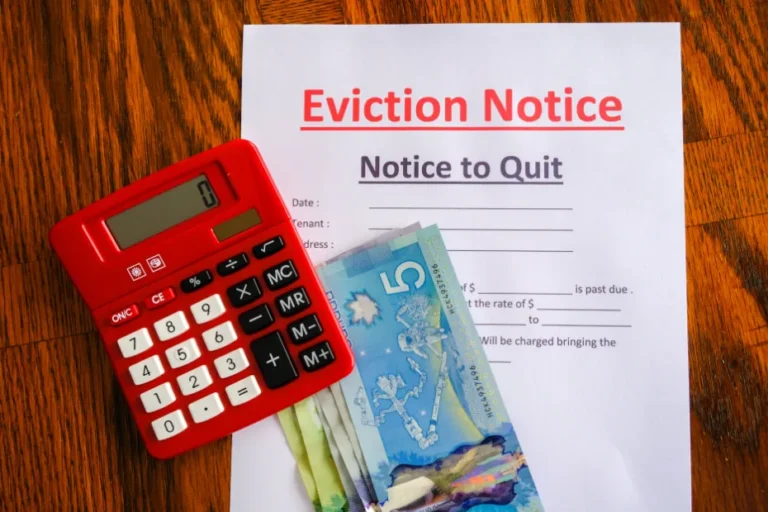How Much Does an Eviction Notice Cost in California?
The cost of an eviction notice in California varies depending on the type of eviction, but it can range from $200 to $500. In California, the cost of an eviction notice can vary depending on the specific circumstances of the eviction process.
The fees associated with an eviction notice typically include court filing fees, service of process fees, and attorney fees if legal representation is sought. It is important to consult with a legal professional to determine the exact cost of an eviction notice in your specific situation.
Understanding the potential costs involved in an eviction notice can help landlords and tenants prepare and budget accordingly.

Eviction Notice Costs In California
Curious about the cost of an eviction notice in California? Get the details on the financial obligations associated with filing an eviction notice in the state.
Introduction: Eviction Notice Costs In California
If you’re a landlord or a tenant in California, understanding the costs associated with an eviction notice is crucial.
Eviction is a legal process that requires adherence to specific procedures and timelines, and there are various factors that can affect the cost of issuing an eviction notice.
Types Of Eviction Notices
Before diving into the costs, it’s essential to familiarize yourself with the different types of eviction notices that can be issued in California. These notices are typically based on the grounds for termination of a tenancy. Here are a few common eviction notice types:
- Pay or Quit Notice: This notice is issued when a tenant fails to pay the rent in a timely manner. It serves as a warning for the tenant to pay the outstanding amount or vacate the premises.
- Notice to Cure or Quit: When a tenant violates the terms of the lease agreement, such as engaging in illegal activities or causing property damage, a notice to cure or quit is issued. This notice allows the tenant to remedy the violation within a specified timeframe or face eviction.
- Unconditional Quit Notice: This type of notice is reserved for severe lease violations or repeat offenses that cannot be remedied. It demands the tenant to vacate the property without an option to correct the violation.
Factors Affecting Eviction Notice Costs
Several factors come into play when determining the cost of issuing an eviction notice in California. These factors can vary depending on the specific circumstances of the eviction. Here are some key considerations:
- Legal Fees: Engaging an attorney to guide you through the eviction process can be an additional cost to factor in. Attorneys usually charge a flat fee or an hourly rate for their services, and the complexity of the case can affect the total legal fees.
- Court Filing Fees: When initiating an eviction, landlords are required to file a lawsuit in court. Court filing fees differ depending on the county in which the eviction is filed.
- Process Serving: Serving the eviction notice to the tenant must be done according to specific legal requirements. Depending on the method used, whether it’s personal service, substitute service, or posting and mailing, there can be costs associated with hiring a process server.
- Time and Effort: The complexity and duration of the eviction process can impact the overall costs. Expenses can accumulate over time through legal consultations, document preparation, and court appearances.
Related Post: How Do I Screen Tenants for Rental Property? 7 Best Tips
Affordable Options For Eviction Notice

When faced with the need for an eviction notice in California, it’s crucial to consider affordable options that fit within your budget.
Luckily, there are resources available to help tenants navigate this process without breaking the bank.
Legal Aid And Tenant Advocacy Programs
Legal Aid and Tenant Advocacy Programs are instrumental in assisting renters who require an eviction notice. These programs offer guidance, support, and legal representation to tenants, ensuring they understand their rights and responsibilities throughout the eviction process.
By partnering with Legal Aid or a Tenant Advocacy Program, tenants gain access to qualified professionals who are well-versed in eviction laws specific to California.
These resources can offer invaluable advice, help tenants respond to eviction notices appropriately, and even provide representation in court if necessary.
Some Legal Aid and Tenant Advocacy Programs may charge a nominal fee based on income, but many operate on a pro bono basis, providing their services free of charge to low-income individuals.
It’s important for tenants to reach out to these programs as soon as possible to enlist their assistance and ensure they receive the support they need without enduring excessive expenses.
Diy Eviction Notice Templates
For those tenants who prefer a DIY approach, utilizing eviction notice templates can be a cost-effective solution. These templates are readily available online and provide a standardized format for creating an eviction notice.
By using an eviction notice template, tenants can ensure they include all necessary information required by California law in a clear and concise manner.
These templates often come with instructions to assist tenants in properly filling out the notice and serving it to the landlord.
While using a DIY eviction notice template may seem straightforward, it’s crucial for tenants to familiarize themselves with the eviction laws in California to ensure they are following the correct procedures.
Failure to do so might result in delays or even dismissal of the eviction proceedings, incurring unnecessary expenses.
Fees Associated With Eviction Notices
When it comes to the process of eviction in California, landlords need to be aware of the various fees associated with issuing eviction notices. Costs involved can help landlords plan their budget and make informed decisions throughout the eviction process.
Court Filing Fees
In California, the cost of filing an eviction case with the court can vary. Generally, filing fees range from $240 to $435. These fees cover the administrative costs of processing eviction cases through the court system.
Process Server Fees
Landlords are required to serve the eviction notice to tenants through a process server. Process server fees typically range from $45 to $75. These fees are for the professional delivery of the eviction notice, ensuring that it is properly served to the tenant.
Attorney’s Fees
If landlords choose to seek legal representation for the eviction process, attorney’s fees can add to the overall cost.
Attorney’s fees can vary based on the complexity of the case and the attorney’s hourly rate. The average cost for legal representation in an eviction case can range from $1000 to $5000.
Additional Costs To Consider
When facing an eviction in California, it’s important to be aware of the additional expenses that may come into play. Beyond the initial costs of the eviction notice, there are other fees and expenses to consider. Understanding these additional costs will help you plan and budget accordingly.
Sheriff Or Marshal Fees
Once an eviction notice has been served, the next step may involve the involvement of a sheriff or marshal. These law enforcement officers are responsible for physically removing the tenant and their belongings from the property.
The fees associated with their services can vary, so it’s essential to inquire about the costs upfront. These fees typically cover the expenses related to coordinating the eviction and overseeing the physical removal process.
Storage Costs
After the eviction has taken place, the tenant’s belongings will need to be stored in a secure location. This may result in additional expenses as the landlord or property manager will have to organize and cover the costs of storing the tenant’s possessions.
These storage costs can vary based on the duration and the volume of items being stored. It’s essential to take these costs into account when budgeting for an eviction.
Related Post: How Much Does It Cost to Fight an Eviction? Expert Tips
Tips For Minimizing Eviction Notice Costs
When it comes to dealing with an eviction notice in California, minimizing costs is a top priority for landlords and tenants alike.
Understanding the tips and strategies for reducing eviction notice expenses can help both parties navigate the process more efficiently and affordably.
Early Resolution And Negotiation
Addressing potential eviction issues at the earliest stage possible, both landlords and tenants can save on costs associated with legal fees and court proceedings. Seeking early resolution can help prevent the need for an eviction notice altogether.
- Open and clear communication between landlords and tenants is crucial for early resolution.
- Landlords should promptly address tenant concerns and complaints to maintain good tenant relationships.
- Tenants should notify landlords immediately about any issues with rent payments or property maintenance.
Proper Documentation And Organization
Strong documentation and organized record-keeping can significantly reduce eviction notice costs by providing clear evidence and support for the case. Proper documentation helps both landlords and tenants present their positions accurately and objectively.
- Landlords should keep detailed records of rent payments, repairs, and any communication with tenants.
- Tenants should maintain copies of lease agreements, rent receipts, and any relevant correspondence with landlords.
Additionally, both parties should consider the following:
- Document any repairs or maintenance requests, including dates and descriptions of the issues raised.
- Keep a copy of all notices served, including eviction notices, to establish a clear timeline of events.
- Consider seeking legal advice or consultation to ensure proper documentation and adherence to applicable laws.
- Review and understand the rights and responsibilities outlined in the California Tenants’ Rights Handbook and other relevant resources.
Frequently Asked Questions For How Much Does An Eviction Notice Cost In California?
How Much Does It Cost To Evict A Tenant In Ca?
Evicting a tenant in California typically costs around $1,000 to $3,000, depending on various factors. Legal fees, court costs, and potential damages are all expenses to consider. The exact cost can vary, so consulting with a lawyer is recommended for accurate estimations.
How Much Money Does A Landlord Have To Give A Tenant To Move Out In California?
The amount of money a landlord must give a tenant to move out in California depends on the circumstances. For a no-fault eviction, the amount may be as low as one month’s rent. However, for a tenant who has been evicted due to code violations, the amount may be significantly higher.
How Long Does It Take To Evict A Tenant In California?
Evicting a tenant in California takes around 2 to 3 months. The time frame can vary based on the complexity of the case and local court schedules. Landlords must follow the legal eviction process to ensure a smooth and efficient resolution.
How Much Notice Is Required For Eviction In California?
In California, the amount of eviction notice required varies based on the reason and type of tenancy. For non-payment of rent, 3-day notice is common. 30 or 60-day notices are typical for no fault evictions or lease terminations. Specific situations may require longer notice periods.
Conclusion
Eviction notice costs in California can vary depending on several factors, including legal fees, court fees, and potential eviction-related expenses.
It’s crucial for landlords and tenants to understand these costs to avoid any surprises down the line. By being aware of the specific fees involved, individuals can better prepare themselves and make informed decisions about the eviction process.
Whether you’re a landlord or a tenant, having a clear understanding of the costs associated with eviction notices can help minimize financial stress and ensure a smoother experience overall. Don’t let the cost of an eviction notice catch you off guard; do your research to stay prepared.






